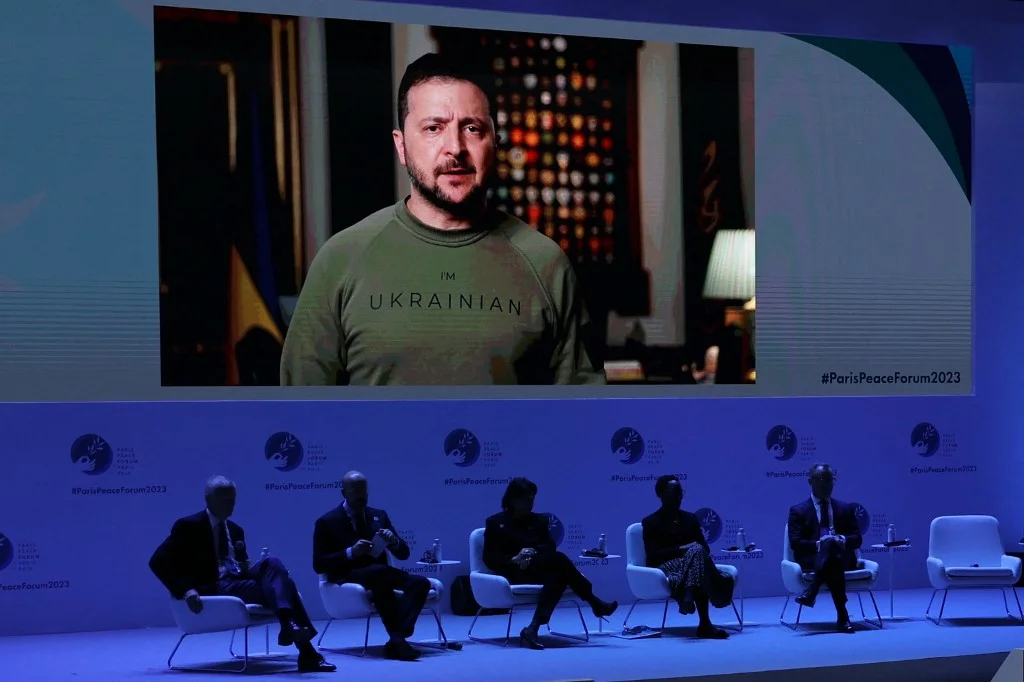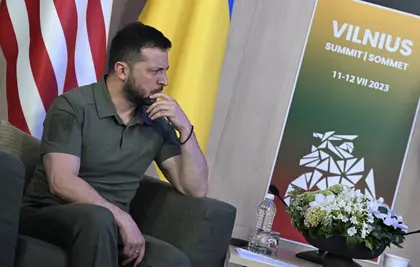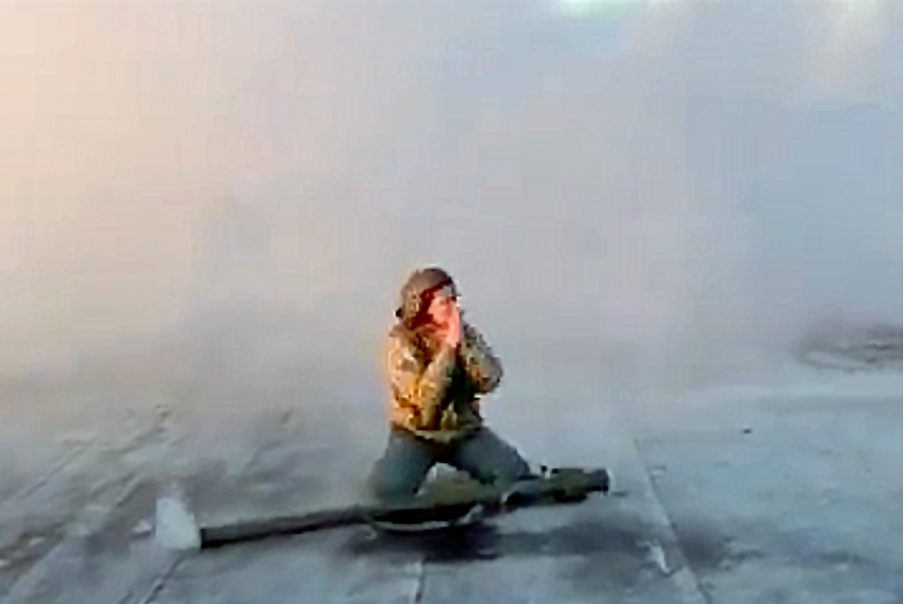If you’ve been following the news, you might know that Ukraine has been working to get the world on board with its “10-point peace plan” to end the war.
Ukrainian President Volodymyr Zelensky first presented the blueprint, sometimes called the “Zelensky Peace Plan” or the “Ukrainian Peace Formula,” at a November summit of the Group of 20 major economies.
On Aug. 5 and 6, Ukraine started working to gain support for the 10-point plan among the 42 countries that participated in the first organizational peace summit in Jeddah, Saudi Arabia. Although not every country that participated in the summit was fully on board with every point, most were broadly supportive.
Eventually, Kyiv hopes that a global peace summit involving world leaders will be held and that they’ll agree to Ukraine’s vision.
But just what are these 10 points?
Well, they start with nuclear security and end with the confirmation of the end of the war in Ukraine with an emphasis on international security and justice.
Kyiv Post presents a summary of Ukraine’s blueprint for peace here:
1. Nuclear safety
In March of 2022, Russia became the first country in the world to militarily take over a working nuclear station when it took control of a nuclear plant located in Zaporizhzhia in Ukraine.
Since the occupation of the power plant, Russia has been reckless with the plant, even using it as a military base, knowing that Ukraine won’t shoot at it.

‘If They Cut, I Think We Will Lose’ – Ukraine at War Update for Nov. 20
Furthermore, since being run by the Russians, the power plant has repeatedly been brought to dangerous levels. “Ukrainian nuclear power plants and installations must operate safely under full sovereign control of Ukraine. Russian troops shall be withdrawn from the territory of the Zaporizhzhia Nuclear Power Plant, and its territory shall be completely demilitarized,” according to Ukraine’s peace plans.
With its bombing and shelling, Russia’s war on Ukraine has also put other nuclear power plants at risk.
Under Ukraine’s plan, the International Atomic Energy Agency plays a lead role in implementing nuclear safeguards until power plants are returned to Ukraine.
2. Food security
It’s become very difficult for Ukraine to deliver its grain abroad, particularly to poorer Asian and African countries, where, without the grain, many risk starvation.
As part of the peace plan, Russia should stop shelling Ukraine’s ports and grain elevators and ensure the safety of Ukraine's grain exports.
“The matter of food security shall be de-weaponized,” the document says.
In July 2023, Russia withdrew from the Black Sea Grain Deal, and there have been multiple attacks on Ukrainian port infrastructure and warehouses since then. On Nov. 9, a Liberian-flagged civilian ship traveling to Odesa was hit by a Russian missile.
3. Energy security
The upcoming winter will likely be another test for Ukraine. This past winter, despite many attempts, Russia failed to destroy Ukraine's energy resources and facilities, which would have left Ukrainians without light and heat.
Nevertheless, Russia did do significant damage.
This winter, Ukraine believes Russia will likely attempt to freeze Ukrainians once again.
As part of Zelensky’s peace plan, Russia should end its energy terrorism, and that Ukraine’s energy facilities should be internationally monitored, protected, and restored.
4. Release of prisoners
A staggering number of Russia’s prisoners – including both Ukrainian soldiers and civilians – have undergone torture.
Also, as many as 19,500 Ukrainian children have been deported to Russia against their will – an abduction, Ukraine says.
The International Criminal Court has issued an arrest warrant for Russian President Vladimir Putin and Russia’s commissioner for children’s rights, Maria Alekseyevna Lvova-Belova, for the forced abduction of Ukrainian children – many of whom have been adopted by Russian families.
Under the peace plan, Russia should release all of its prisoners and deported people.

Ukrainian president Volodymyr Zelensky addresses participants via videoconference during the Paris Peace Forum at the Palais Brongniart in Paris, on Nov. 10. PHOTO: AFP
5. Territorial integrity and restoration as per UN Charter
“All Members shall refrain in their international relations from the threat or use of force against the territorial integrity or political independence of any state,” reads Article 2 of the UN Charter.
Russia must fully restore Ukraine’s territorial integrity, including Crimea, which it invaded and annexed in 2014. The United Nations General Assembly rejected Crimea’s so-called “referendum” to join Russia.
In mid-2023, Russia also held multiple referendums in the occupied territories of Ukraine in a bid to annex them. In his peace plan, Zelensky urged for a full restoration of Ukraine's state border as established in 1991 during its independence.
6. Cessation of hostilities and withdrawal of Russian troops from Ukraine
Russia must withdraw its army from Ukraine and cease hostilities.
7. Justice and special tribunal
A special tribunal should be created to prosecute Russian war crimes, and Russia should be held accountable for its violations of international law.
National and international evidence-gathering efforts, including by the International Criminal Court, are continued and strengthened.
8. Environmental safety
Russia’s war on Ukraine has caused environmental damage on an immense scale.
It’s led to unprecedented levels of pollution, destruction of ecosystems, and the deaths of massive numbers of animals.
Ukraine says that one of the most devastating acts of environmental destruction happened on June 6, when Russia detonated explosives from within the Kakhovka Hydroelectric Power Plant. With consequences that will be felt for years, dozens of farms, villages, and towns were wiped away by flooding and thousands of people were evacuated.
“It's really ecocide that the Russian Army committed in Ukraine,” Oleksandr Todorchuk, the founder of Ukrainian animal welfare charity UAnimals told Newsweek.
Tens of thousands of animals likely died in the flooding, Todorchuk said.
Beyond the destruction of its dam, a great deal of Ukraine has been mined with explosives. First Deputy Prime Minister Yulia Svyrydenko has said that as much as 174,000 square kilometers of Ukraine could be contaminated with explosives.
Ukraine is calling for three steps:
-
- Short, medium, and long-term damage assessment, including the impact on human health and biodiversity
- Prosecution for those responsible for the environmental damage
- Recovery and reconstruction
9. Prevention of future aggression
With an unpredictable and belligerent neighbor at its border, Ukraine wants a refined post-war security architecture so Russia won’t simply invade it again.
For that reason, the security guarantees for Ukraine should come from its international partners.
10. Confirmation of war’s end
This is the final step. The framework is set for ending the war, guaranteeing Ukraine’s future security and its reconstruction – peace for Ukraine in its entirety.
The end of the war should be confirmed at a peace conference, held with the widest possible number of countries participating and contributing. A legally binding international agreement should be signed.
Kyiv hopes its peace plan will then be used for “preventing the repetition of aggression against Ukraine and any other state in the future, small or big.”
According to Ukrainian Foreign Minister Dmytro Kuleba, hundreds of peace talks have taken place between Ukraine and Russia since 2014, but none of those negotiations “prevented Putin from launching a brutal all-out invasion of Ukraine on February 24, 2022.” Thus the need for Zelensky's peace plan arose – a plan that not only ends the war but ensures peace in the long run.
You can also highlight the text and press Ctrl + Enter






